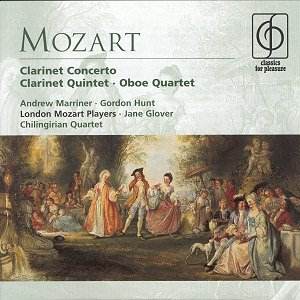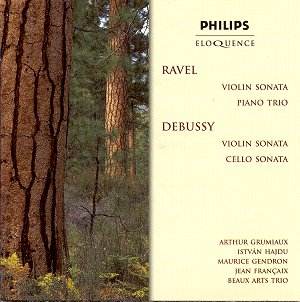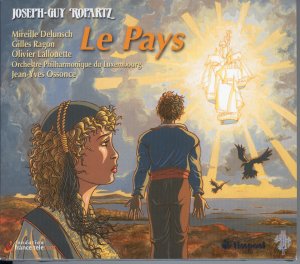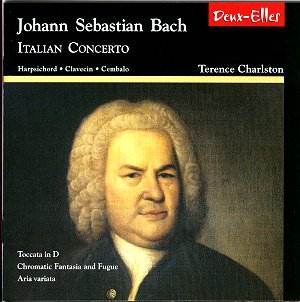 Composer: Wolfgang Amadeus Mozart
Composer: Wolfgang Amadeus Mozart
Works: Oboe Quartet in F K370, Clarinet Quintet in A K581, Clarinet Concerto in A K622
Performers: Gordon Hunt (oboe), Andrew Marriner (clarinet), Chilingirian Quartet, London Mozart Players, Jane Glover (conductor)
Recording: Rosslyn Hill Chapel, Hampstead (November 1984 – Clarinet Concerto), Wigmore Hall (December 1981 – Quintet and Quartet)
Label: EMI Classics for Pleasure
Mozart’s chamber works for wind instruments reveal a profound understanding of both the unique characteristics of the instruments and the intricate interplay between soloists and strings. The Oboe Quartet in F K370, the Clarinet Quintet in A K581, and the Clarinet Concerto in A K622 are prime examples of this, showcasing Mozart’s brilliance in melding lyrical lines with rich harmonic textures. This recording, featuring Gordon Hunt on oboe, Andrew Marriner on clarinet, and the esteemed Chilingirian Quartet, presents these masterpieces with a freshness and vitality that resonates deeply with both the historical context and modern sensibilities.
Gordon Hunt’s interpretation of the Oboe Quartet is particularly striking. The performance is imbued with a buoyancy that reflects the work’s playful spirit, while Hunt’s tone is full and centered, articulated with clarity and a delightful sense of phrasing. The Chilingirian Quartet provides a supple accompaniment, their strings weaving in and out of the oboe’s lyrical lead with a balance that feels both organic and purposeful. Notably, in the second movement, the dialogue between oboe and strings unfolds with an almost conversational intimacy, where the ensemble’s delicate dynamics allow the inherent beauty of the oboe to shine without overshadowing the ensemble.
Turning to the Clarinet Quintet, Marriner’s interpretation offers a contrasting yet complementary approach. The first movement unfolds with a certain generalized restraint, which, while less daring than one might hope, finds its strength in the lyrical beauty of the Larghetto. Here, Marriner’s expressiveness comes to the fore, particularly in the soaring lines that demand both technical prowess and emotional depth. The Menuetto, characterized by its playful yet stately dance, is handled with a lively precision that underscores the clarinet’s agility while maintaining a strong sense of ensemble cohesion. The engineering captures this dynamic interplay effectively, with a sound quality that is rich and clear, allowing the listener to appreciate the subtleties of phrasing and tonal color.
The recording of the Clarinet Concerto, also featuring Marriner, presents a competitive yet unfussy interpretation that holds its own in a crowded field. While comparisons to other notable renditions, such as Emma Johnson’s with Raymond Leppard, are inevitable, Marriner’s performance emerges as a solid, technically adept offering. The Adagio, in particular, showcases a lyrical eloquence that is both heart-wrenching and transcendent, a testament to Marriner’s ability to navigate the concerto’s expressive demands. Jane Glover’s conducting lends a supportive yet unobtrusive presence throughout, ensuring that the London Mozart Players maintain their clarity and flexibility, even if they occasionally lack the responsiveness found in more agile ensembles.
This recording offers a compelling representation of Mozart’s wind compositions, with each work presented with a distinct interpretative flair and an admirable technical command. The combination of Hunt’s vibrant oboe playing, Marriner’s nuanced clarinet interpretations, and the Chilingirian Quartet’s cohesive sound provides an enriching listening experience. The engineering captures the ensemble’s intricacies beautifully, making this disc a valuable addition to the catalog of Mozart’s chamber works. As a whole, this collection stands as a testament to the enduring brilliance of Mozart’s music, rendered with a freshness that invites both seasoned listeners and newcomers alike to discover or rediscover these masterpieces.



